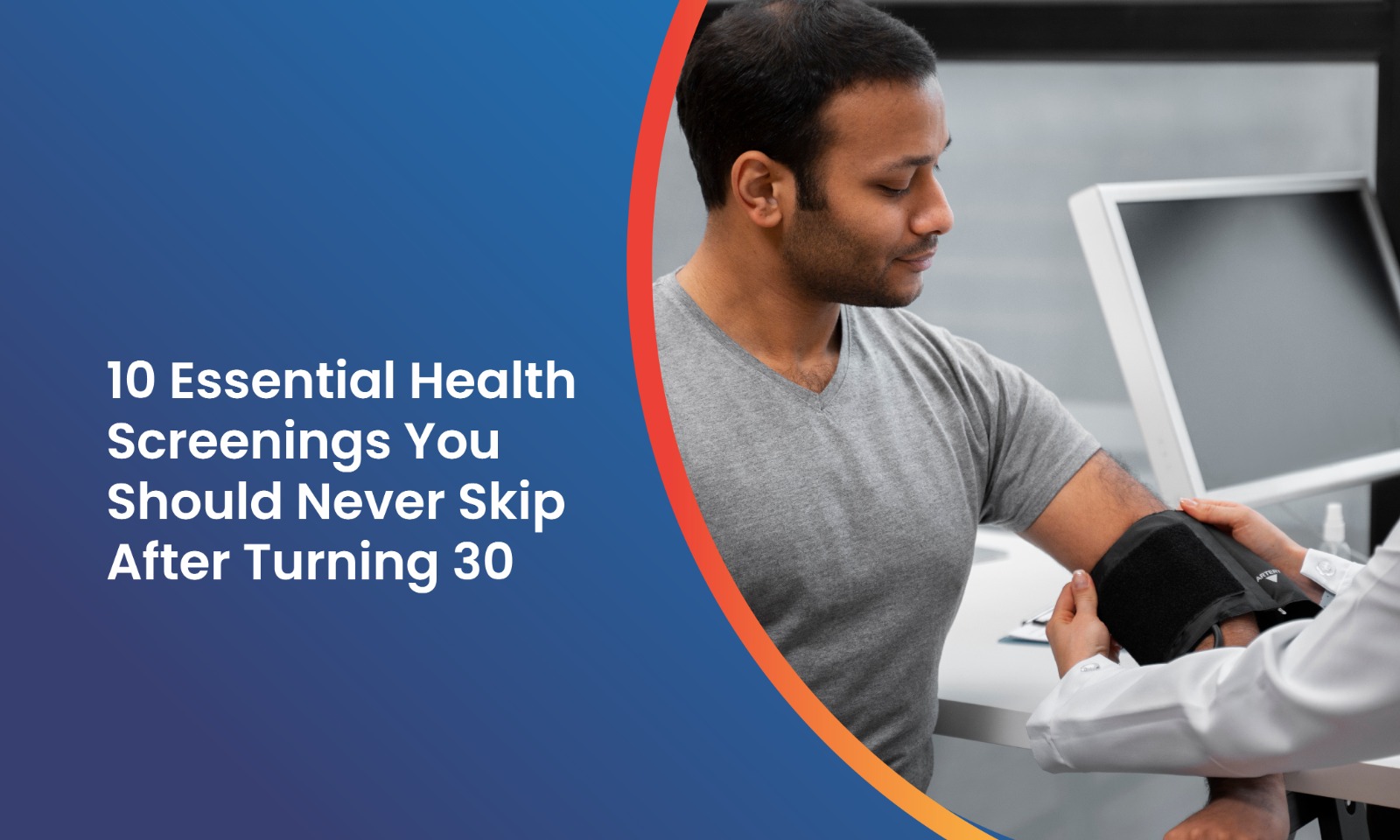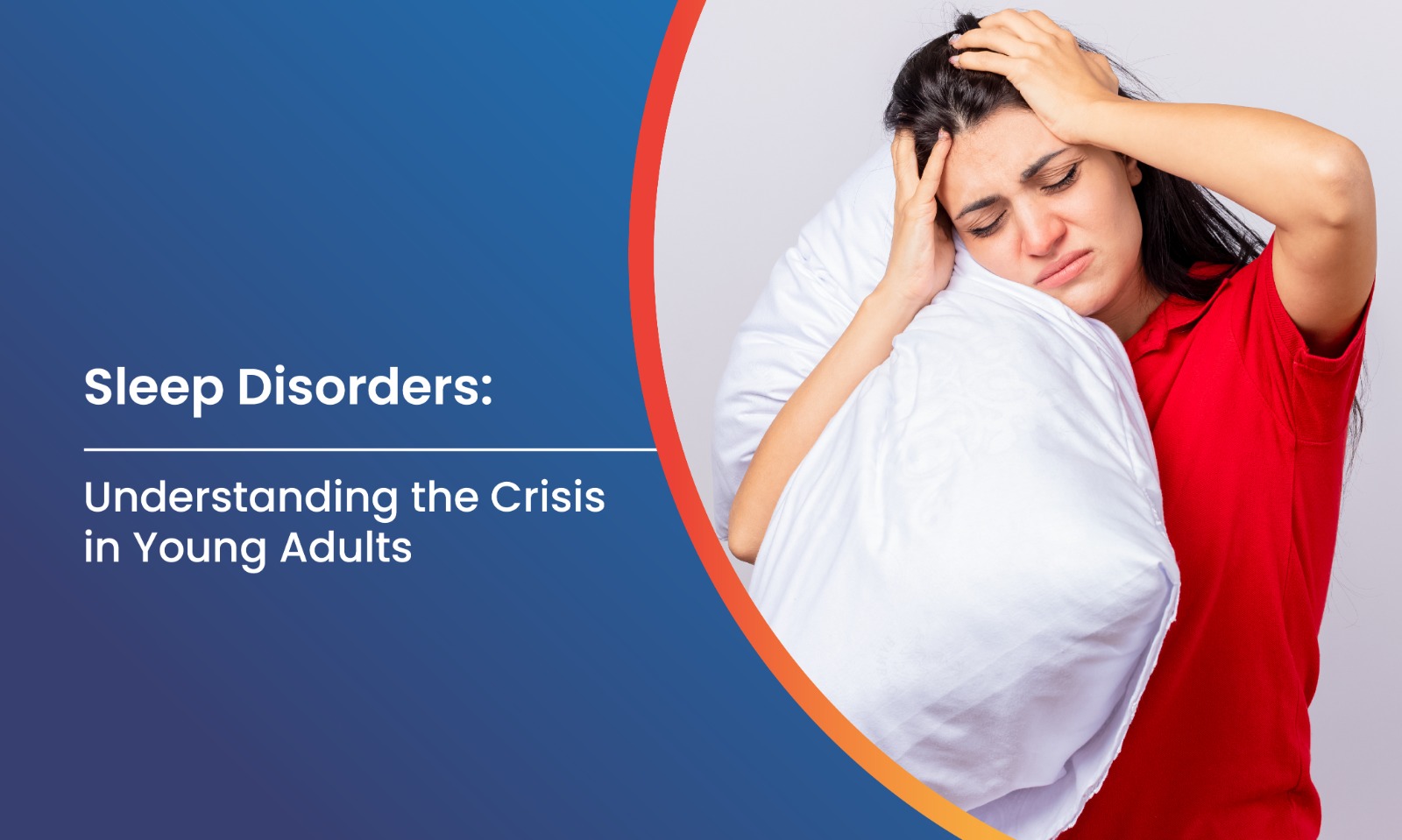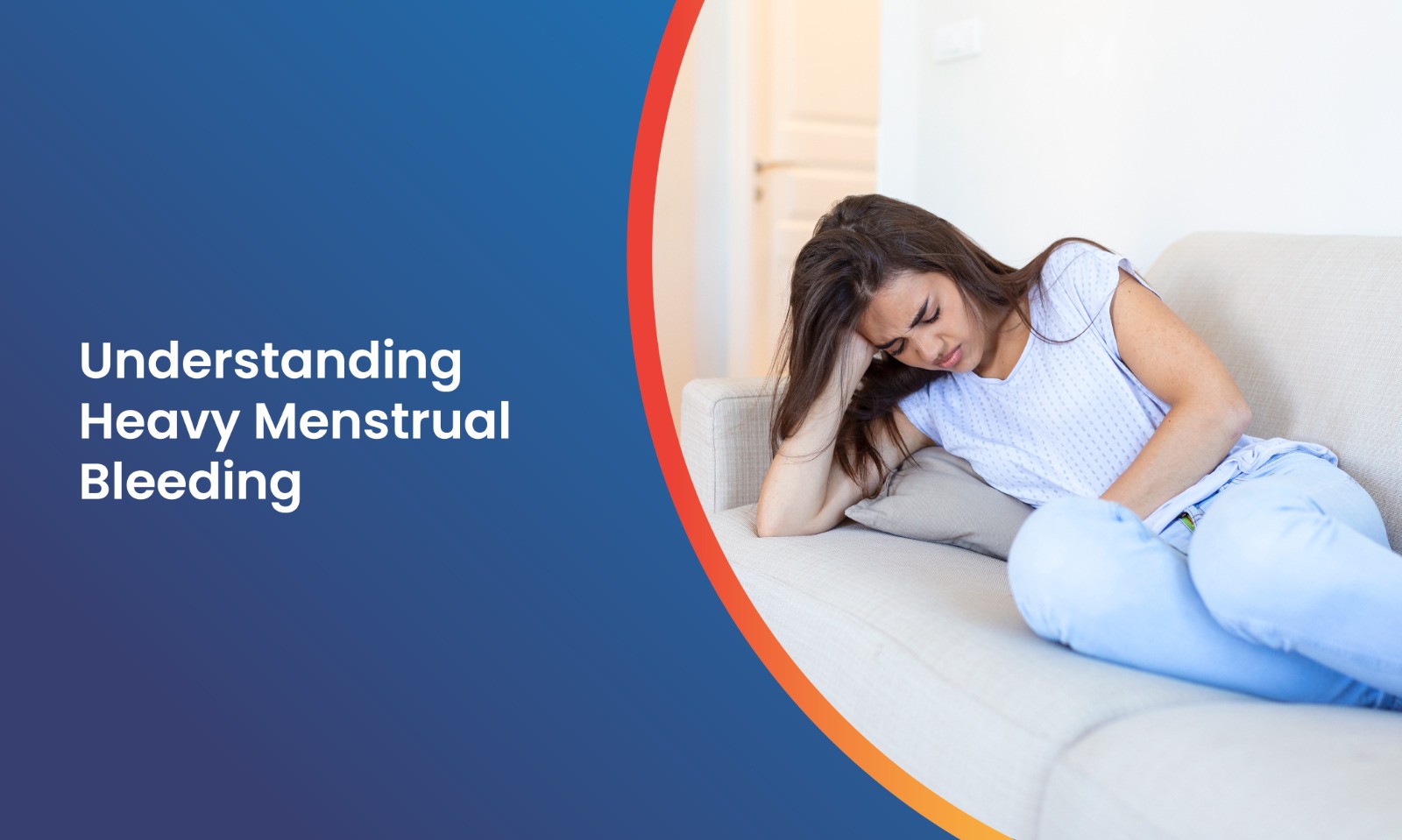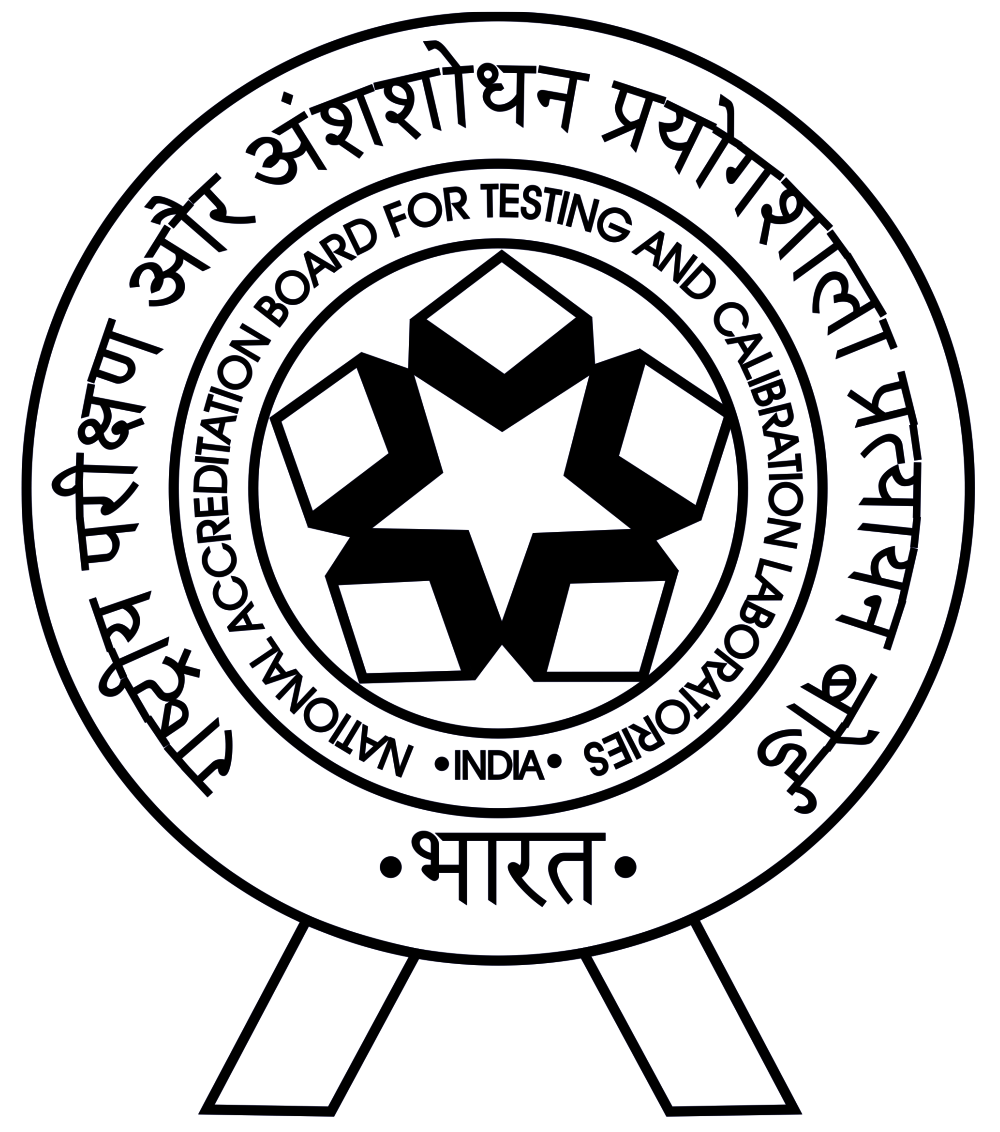10 Essential Health Screenings You Should Never Skip After Turning 30

10 Essential Health Screenings You Should Never Skip After Turning 30
Entering the 30s starts a new chapter in your life and healthcare journey; you have many responsibilities on your shoulders. A more proactive approach is needed to maintain a healthy & balanced lifestyle. Therefore, regular screenings help you understand your health condition, enabling early detection and allowing you to take necessary measures.
Many people think they are fit and feel fine in their thirties, but many health problems do not show any signs. The 30s come with a hectic and stressful lifestyle, and adopting a regular health check-up routine makes your life healthier. Below are ten crucial health screenings you should schedule after age 30 to safeguard your overall health.
Table of Contents
- Blood Pressure Screening
- Cholesterol Check
- Sugar Test
- Complete Blood Count (CBC)
- Thyroid Function Test
- Liver and Kidney Function Tests
- Cervical Cancer Screening
- Skin Cancer Screening
- Eye Test
- Oral Health Check-up
- Why are These Screenings Necessary?
- Tips for Staying on Top of Your Screenings
Blood Pressure
High blood pressure or hypertension is a major risk factor for heart attacks and stroke. Many heart-related problems develop without symptoms; regular screening for early detection and management is crucial. Maintaining a stable blood pressure helps you reduce the risk factors of serious cardiovascular problems.
- Anyone whose age is over 20 should check their blood pressure at least every two years (Recommended by the American Heart Association).
- Regular checks are needed more often if you have high-risk factors.
- Early detection helps you prevent any serious problems.
Cholesterol Check
After crossing 30, the risk of a rise in cholesterol is high, which can cause a sudden heart attack. Regular cholesterol screenings help detect imbalances early, allowing you to adjust your diet and lifestyle to address any potential future problems. Managing cholesterol is a key part of maintaining heart health.
- Check your cholesterol every four to six years or more often if you have risk factors.
- The test detects LDL (bad cholesterol), HDL (good cholesterol), and triglycerides.
- High cholesterol can often be managed through a combination of diet, exercise, and, in some cases, medication.
Sugar Test
Type 2 diabetes is becoming more common in adults in their 30s, especially with certain risk factors. Blood sugar tests can detect prediabetes or diabetes early, allowing for timely intervention. Early management can prevent complications like nerve damage, kidney disease, and vision loss.
- A fasting blood sugar or HbA1c test is typically used for screening.
- Those with a family history of obesity or a sedentary lifestyle should be especially vigilant.
- Early detection enables effective management through lifestyle changes and, if necessary, medication.
Complete Blood Count (CBC)
A CBC is a routine blood test that evaluates your overall health and detects a range of disorders. It can detect issues such as anaemia, infection, and even certain cancers before symptoms appear. Regular CBCs are a simple way to monitor your body’s internal health.
- Recommended if you experience fatigue, weakness, or frequent infections.
- Helps identify underlying health problems early.
- Your doctor may suggest this test annually or as symptoms arise.
Thyroid Function Test
Thyroid disorders can affect metabolism, energy, and mood and often go unnoticed in their early stages. A thyroid function test measures hormone levels to detect issues like hypothyroidism or hyperthyroidism. Early diagnosis is crucial for effective treatment and symptom relief.
- A simple blood test measures thyroid-stimulating hormone (TSH) and sometimes T3 and T4.
- Symptoms of thyroid dysfunction can be subtle, such as weight changes or fatigue.
- Screening is crucial for women and those with a family history.
Liver and Kidney Function Tests
Your liver and kidneys are essential for detoxifying your body and maintaining metabolic balance. These tests can detect early signs of damage from conditions like hepatitis, fatty liver disease, or chronic kidney disease. Regular screening is critical if you have risk factors.
- Blood tests give information about how well your liver and kidneys are functioning.
- Annual screening is advised for those with obesity, high alcohol consumption, or a family history.
- Early detection can prevent any further problems & help you take necessary precautions.
Cervical Cancer Screening (Pap Smear and HPV Test)
Cervical cancer screening is vital for women starting at age 21, with updated guidelines for those over 30. Pap smears and HPV tests detect precancerous changes and infections that can lead to cervical cancer. Early detection dramatically reduces the risk of invasive cancer.
- Pap smear every three years, or Pap plus HPV test every five years from age 30 to 65.
- Detects abnormal cells and high-risk HPV strains.
- Regular screening is crucial for prevention and early treatment.
Skin Cancer Screening
Skin cancer risk increases with age and sun exposure, making regular skin checks necessary. Dermatologists can spot suspicious moles or changes early, leading to prompt treatment. Self-exams and professional screenings are both essential parts of prevention.
- Annual skin checks by a dermatologist are necessary.
- Perform monthly self-exams to look for new or changing moles.
- More frequent screenings may be necessary if you have risk factors, such as fair skin or a family history.
Eye Test
Eye health can change in your 30s, even if you have no vision problems. Complete eye tests detect early signs of glaucoma, cataracts, and other eye diseases. Early intervention can preserve your eyesight and overall eye health.
• At least two eye exams during your 30s, or every two years if you have risk factors.
• It is essential for those with diabetes, vision problems, or a family history of eye disease.
• Exams can also detect other health issues, such as high blood pressure.
Oral Health Check-up
Oral health is directly linked to overall wellness, with dental issues sometimes contributing to systemic diseases. Regular dental check-ups help prevent gum disease, cavities, and oral cancers. Good oral hygiene and professional care are essential for long-term health.
- Visit your dentist at least once a year for a cleaning and examination.
- Dental visits can detect problems early and prevent more serious issues.
- Oral health maintenance supports your overall physical well-being.
Why are These Screenings Necessary?
Many health problems develop silently without showing early symptoms until they reach an advanced stage, making them difficult to treat. Regular screenings not only offer you a chance to detect problems early but also help you treat them in time. By staying proactive about your health, you can reduce the risk of chronic diseases, improve your quality of life, and ensure long-term well-being.
These screenings not only help you detect serious problems that may arise in the future but also provide complete information about your health. The screening results help you take the necessary steps to lead a healthy life. Screenings give you a clear picture of your health even if you feel “Fit & Fine”.
Scheduling your screening is a necessary step toward a healthy and stress-free life.
Tips for Staying on Top of Your Screenings
- Maintain a personal health calendar or use a digital reminder system to track when your next screening is due.
- Discuss your family history and lifestyle with your healthcare provider to personalise your screening schedule.
- Don’t ignore sudden changes in your body; report new symptoms or concerns promptly.
- Maintain a healthy lifestyle through balanced nutrition, regular exercise, and stress management to complement your preventive care routine.
Reaching 30 is a significant milestone in life, accompanied by numerous new challenges and responsibilities that necessitate a healthy lifestyle. These 10 screenings help you lay the foundation for a lifetime of well-being and vitality. Always remember that prevention is better than a cure.
Take charge of your health today and make your coming years healthy and stress-free.
Frequently Asked Questions (FAQ)
Q1. Why are health screenings important after age 30?
Regular health screenings after age 30 help detect potential health issues early, often before symptoms appear. Early detection allows for timely intervention and more effective management of conditions. This proactive approach can significantly improve long-term health and quality of life.
Q2. How often should I have my blood pressure and cholesterol checked in my 30s?
Blood pressure should be checked at least every two years, or more frequently if you have high readings or risk factors. Cholesterol levels should be tested every four to six years, but your doctor may recommend more frequent checks based on your health profile.
Q3. Are these screenings necessary if I feel healthy and have no symptoms?
Yes, many severe health conditions develop silently and may not show symptoms until they are in an advanced stage. Routine screenings can catch these issues early, making treatment easier and more effective.
Q4. What should I do if a screening test shows abnormal results?
If a screening reveals abnormal results, follow up quickly with your doctor. They will guide you through additional tests, diagnosis, and treatment options to address the issue and prevent complications.
Q5. Can lifestyle changes reduce the need for frequent health screenings?
Healthy habits, such as maintaining a balanced diet, engaging in regular exercise, and avoiding tobacco, can lower your risk of many conditions. However, screenings are still essential because genetics and other factors can influence your health beyond lifestyle choices.














